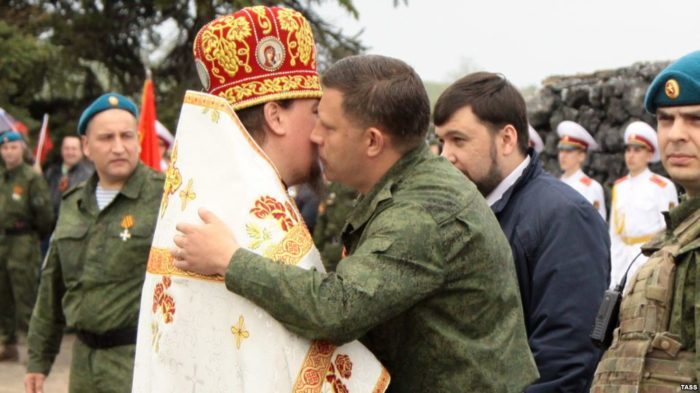Church matters are heating up in Ukraine. After years of getting priority treatment from the government, the Ukrainian Orthodox Church under the Moscow Patriarchate (UOC MP) is caught between a rock and a hard place.
The government has made a U-turn in its policy towards the Moscow-backed church, opened up criminal cases against its clergy, and is attempting to evict it from the Kyiv-Pechersk Lavra monastery in Kyiv. It is also eyeing plans to ban the organization while protest groups around the country are demanding that “Moscow priests get out” and cathedrals are changing hands to the independent Orthodox Church of Ukraine, facing the brunt of public pressure.
The Moscow-backed church is accused of being an instrument of Russia’s soft power and promoting the “Russian World,” a quasi-religious ideology based on the belief in the supremacy of the Russian nation driving Russia's war against Ukraine. Meanwhile, the UOC MP rejects this accusation, claims it stands with Ukraine in the fight against the Russian invasion and that its connection to Russia is merely formal and cries religious persecution.
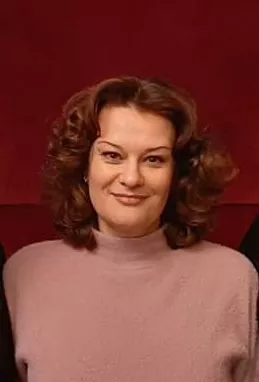
Maintaining that there is no smoke without fire, we talk to Tetiana Derkach, a religious expert, co-founder of the Center of Religious Security, and author of the book “Moscow Patriarchate in Ukraine: Anatomy of Treason,” to understand whether the UOC MP is indeed the Kremlin’s fifth column in Ukraine, whether the Ukrainian state's actions towards it will yield results, and why the "Russian World" ideology has such a grip on the minds of Russians -- and some Ukrainians. Here is a shortened version of our conversation.
Tetiana Derkach can be rightfully considered a leading expert on the collaboration of the UOC MP with Russia and its promotion of the "Russian World" ideology. In her book, released in 2018, she documented in great detail the treasonous activities of UOC MP clergy.
"I was prompted to search for justice. Since 2005, I observed the evolution of the UOC-MP, and was actually the first person to react to Patriarch Kirill's 2009 sermon on the 'Russian World' at the Third Assembly of the 'Russian World,' which specifically concerned Ukraine. Then, Putin wanted to make a blitzkrieg for the annexation and political integration of Ukraine into the Russian Federation. Then, I explained why it was, firstly, fiction, and secondly, manipulation. Afterward, I tracked how Russia increased its pro-Russian capital within the UOC MP.
And when, after 2014, after UOC MP members openly supported Russia’s war and annexation of Crimea, the UOC MP began to brazenly deny their service in Russia's interest and declare their pro-Ukrainian position, it simply hurt me. I decided to collect just a few facts to prove that it was a systematic activity," Tetiana explains.
UOC MP: history of a dance with the “Russian world”
Up till 2013, the UOC MP had a monopoly on religious life in Ukraine, as Ukrainian authorities who declared themselves as faithful of this church promoted it. These were the golden years for the UOC MP. They could do whatever they wanted: ignored the laws, engaged in cronyism with government officials. Their ideology was aimed at fully tying their parishioners to the cultural, mental, ideological, and civilizational space of Russia, where Ukraine was formally a separate state, but in essence, it was a branch of Russia.
This did not sit well with the patriotic part of Ukrainians, but no one actively resisted, as the UOC MP was too powerful. Then in 2014, the Euromaidan revolution happened, after which Russia occupied Crimea and invaded Ukraine. The UOC MP on occupied Ukrainian territories collaborated with the Russian occupiers. It supported the annexation of Crimea, saying, "Finally, we are in Russia." I suspect they had prepared for this.
They also supported Russia when it unleashed a war in Ukraine’s Donbas, where Russia set up two proxy states, the Luhansk and Donetsk “People’s Republics” (“LNR,” “DNR.”) During the war there, which was ongoing since 2014, the UOC MP supported anti-Ukrainian military forces, blessing the Russian-backed separatists. There were many such cases, and Russian occupiers presented them as symbols of the Church's spiritual support for their war.
This incited hatred in Ukrainian society for the Moscow Patriarchate, which insisted that its flock is on two sides of Russia’s war. Ukrainians felt it was incomprehensible that the Church could bless both the Ukrainian soldiers and the occupying forces in Donbas.
Thus, church independence, or autocephaly, was seen as a matter of national security due to the numerous cases of UOC MP's collaborationism, and talks about it started in 2018.
Cases of collaborationism with Russia in the UOC MP
Just a few prominent examples:
The Sviatohirsk Lavra, a major monastery in eastern Ukraine, sheltered the men of Igor Girkin, a Russian FSB colonel who, in his own words, “pulled the trigger of war” in Ukraine in 2014. The monks of the monastery bestowed their blessings on Girkin’s Russian militaries, were Girkin’s “personal bodyguards,” and a novice of this monastery led one of Girkin’s mercenary units, he told in an interview with a Russian Orthodox Church official. (However, the abbot denied this information).
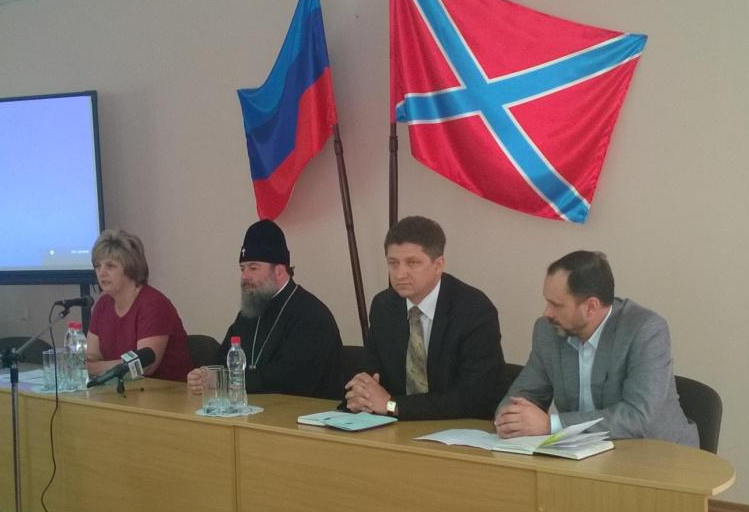
There were priests like Pavel Batarchukov in occupied Luhansk, who systematically supported the Russian-led separatists. They blessed them, performed sacraments, and supported their fighting spirit, essentially acting as political officers.
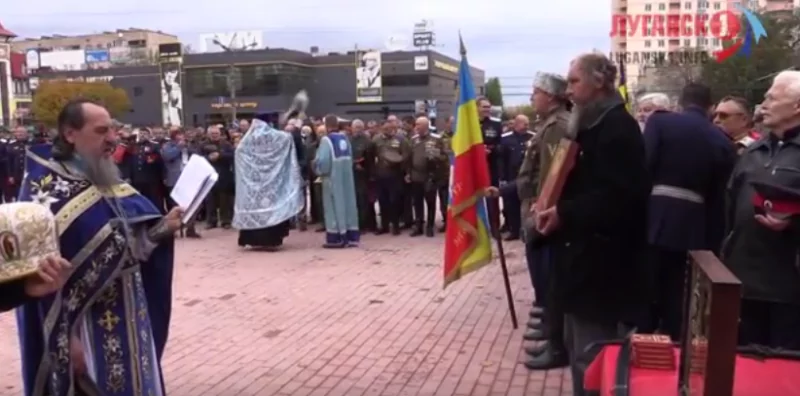
Despite all these actions in service to the Russian occupiers, in 2017, Batarchukov received a letter of blessing from UOC MP Metropolitan Onufriy.
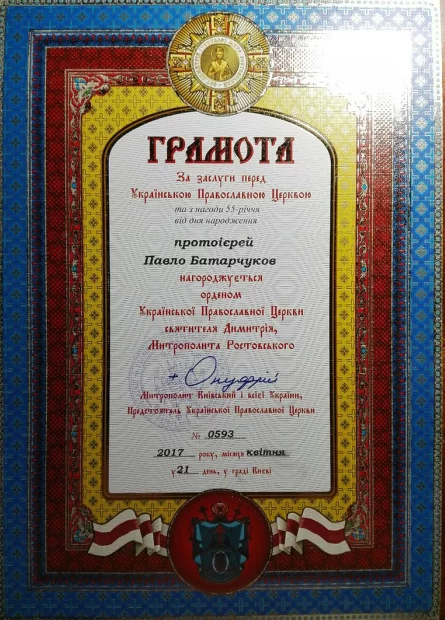
Another example is Volodymyr Maretskyi, a priest also from occupied Luhansk, whom Ukraine sentenced to six years in prison for aiding the Russian-led forces in Donbas and obstructing the Ukrainian Army.
In Crimea, practically all clergy of the UOC MP, starting from the bishops, supported the Russian occupiers. Platon Udovenko, Metropolitan of Feodosiya and Kerch, and others blessed weapons and met with representatives of the occupying authorities.
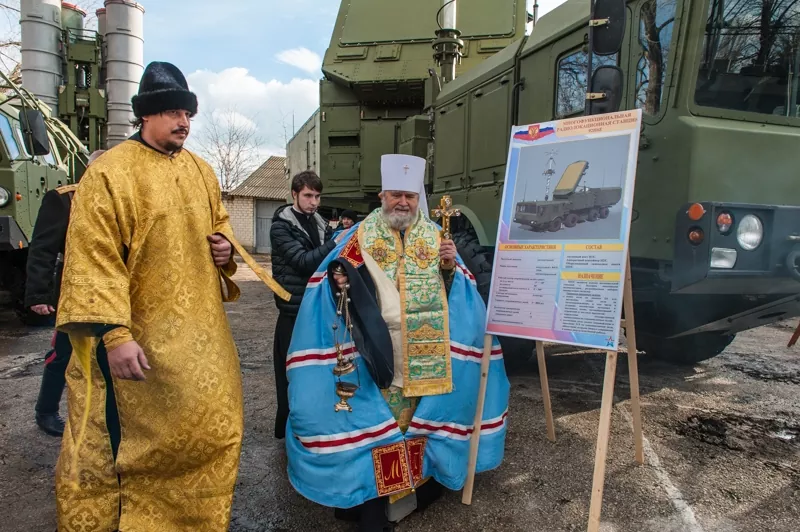
Imperial reincarnation: how the UOC MP promoted the "Russian world"
After Russia’s first invasion in 2014, the UOC MP stopped openly promoting the "Russian world" and instead talked about a “civilizational space” and “civil war.” And after Russia’s full-blown invasion in 2022, the UOC MP started saying that they've always been for Ukraine altogether.
However, pre-2014, their main goal was to shape the consciousness of Ukrainians to believe there is no sense in Ukraine's existence as a separate state. The idea was, “we have a single church, a single people, so what's the point of having two states?”
But they couldn't just say it outright; they needed some ideological foundation to prove the logic of what they were saying. And ideally, it needed to be some spiritual logic because the consciousness of believers is often quite irrational. Furthermore, the Moscow Patriarchate tried to push this irrationality to the maximum by preaching maximum obedience to their clergy.
The UOC MP had a multi-pronged approach to promote this ideological foundation, aka the “Russian world,” tailored to various audiences: the intellectual elites, rural areas, scientists, literary scholars, linguists, public movements, and so on. Something for everyone.
But the common theme was a fixation on Russian spirituality, Russian holiness, and especially Russian elders, who always said that Ukraine cannot exist without Russia. This was the commandment of the elder Zosima, which became a kind of Bible for believers. And in parallel, the UOC MP demonized all alternative Orthodox movements based on Ukrainian patriotism, primarily the Ukrainian Orthodox Church of the Kyiv Patriarchate and Ukrainian Autocephalous Orthodox Church [united into the Orthodox Church of Ukraine, which was granted independence from Ecumenical Patriarch Bartholomew in 2019 - Ed.].
Promoting Russian culture and marginalizing Ukrainian culture
To promote the "Russian world" and move towards the reincarnation of the Russian empire, the UOC MP supported many Russian or pro-Russian public organizations, cultural events promoting the Russian language and holding events for the propaganda of Russian culture, for instance dedicated to Russian writers: “days of Pushkin,” “days of Dostoevsky,” etc. The leitmotif of this cultural propaganda was to portray Ukraine, Ukrainian culture, and Ukrainian consciousness as secondary and provincial. Ukrainian culture was given the right to exist as mere ethnography, a grotesque exhibition of exotic cultural archaism; “Let the Ukrainians have it as a way to release steam, so they will have their own provincial peculiarity,” the logic went.
Supporting pro-Russian paramilitaries
Another way that the UOC MP supported the Russian cause was by supporting paramilitary formations. For example, the Cossack paramilitary movement. Sharing their name with Ukraine’s Cossacks of the Zaporizhzhia Sich, who led liberation struggles against Poland, the pro-Russian Cossacks were part an instrument of promoting the “Russian world” ideology as part of the larger “Great Don Army.”
This international association of Russian neo-Nazi and Black Hundred organizations was officially registered by the Russian Ministry of Justice and centered in the historical Don Cossack Host Oblast in Russia’s Rostov-on-Don. Led by Russian military-political criminal and Cossack army "general" Mykola Kozitsyn, in 2014, it gained notoriety for forming illegal armed groups and sending them to Eastern Ukraine, where they supported Russia’s puppet “LNR.”
In Ukraine, an entire network of such Cossack paramilitary groups subordinate to the Russian center flourished and was supported by the UOC MP, for instance, in Kyiv’s St. Iona Monastery. There, a youth movement of Cossacks rushed to Russia’s support after it invaded Ukraine. For example, their leader at St. Iona’s, Aleksei Selivanov, founded the “Faithful Cossacks” who fought for Russia against the Ukrainian Army in occupied Luhansk. There, UOC MP priests like the abovementioned Batarchukov ushered in the Cossack paramilitaries into the armed structures of Russia’s proxy "LNR" and "DNR," blessing their fight against the Ukrainian Army.
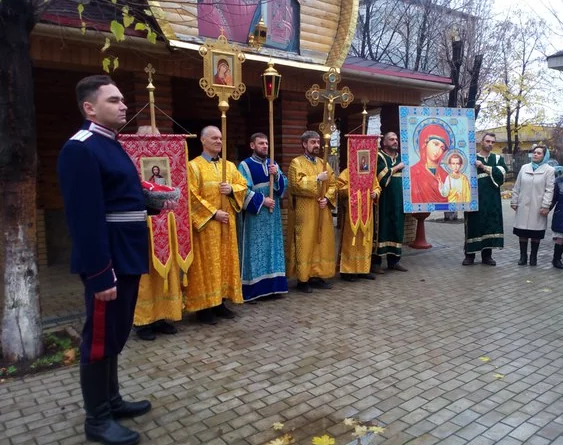
Apart from the Cossacks, Russia’s influence in Ukraine extended to the cadet education institutions, which represented a tradition of imperial military power, organizations of Afghan war veterans, and some members of Ukraine’s Security Service and Ministry of Interior. They were all gathered under the wing of the Moscow Patriarchate in Ukraine, and all proved handy after Russia’s invasion of Ukraine: as the saying goes, if there's a weapon hanging on the wall, it must shoot.
UOC MP views Russia’s invasion of Ukraine as a “feudal struggle”
How can the UOC MP bless priests blessing the Russian invaders in occupied territories? I believe they view all these events – war, occupation -- as “politics”; people with all kinds of political views come to us, so what’s the problem, they ask?
An explanation for this doublethink can be found in the medieval days, in feudal struggles for different princely thrones of the Kyivan Rus. The UOC MP argues that there had always been wars among the Slavs, then a struggle for a centralized Moscow state. So, today's war is no big deal, they say: whoever is stronger will win and control the church. So, for UOC MP priests, the war was not a problem; many of them were waiting for Russian troops.
Now, the UOC MP lives in an illusion that it is a united church, and that nothing catastrophic is happening -- just a “civil war,” and there have been many civil wars on the lands of Rus. They see it as a natural process, calling it " internecine conflict," a “civil war” -- because Russians never viewed Ukraine as a separate state. So, there is a form of consciousness in the UOC MP that views the Russians and Ukrainians as one people, and subsequently, Russia’s war is viewed as a civil war between two branches of the same people.
The “Russian world”: a matryoshka doll
There is an underlying idea that motivates the Cossack movements and the priests who bless Russian weapons. They really believed that the Russian Empire was good and that Ukraine would indeed be better off as part of it. This was a sacred goal for them.
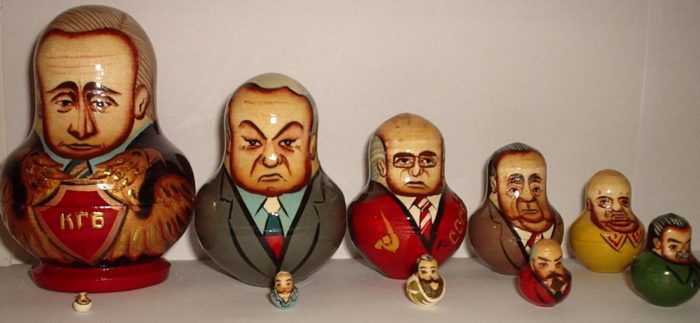
- The first “doll” legalizes the Moscow Tsardom, thanks to the concept of Moscow as the Third Rome. This legalization was based on the idea that Russia is the successor of the Byzantine Empire, coined when Ivan the Terrible married the niece of the last Byzantine emperor and saw himself heir to the legacy of the Roman Emperor Augustus, known for his strong leadership and the expansion of the Roman Empire, and even derived the concept of "Tsar" from the Latin "Caesar.”Generally, this happened because the Moscow state had a problem of state legitimacy. In the ancient Kyivan Rus, a hierarchy of thrones existed: first the Kyiv throne, then the Tver throne, and so on. So, when someone died on the Chernihiv throne, their descendants would take their place, and someone could move up a rank to the Tver throne.The Moscow principality was practically at the bottom of this hierarchy. Therefore, when it became the center of a centralized state, it was illegitimate. So, they needed some legitimacy from the very top, even higher up than the Kyiv throne. They found this in a connection with Byzantium.And so the concept of Moscow as the Third Rome emerged, gradually followed by the concept of God-bearing people, meaning the Russian people. Russia was the bearer of God from within. They did not receive God through preaching or the Gospel; they were, in themselves, the vessels of God by their very origin.
- The second “doll” concerns the intellectual pursuits of the 19th century. Then, a competition between Slavophiles and Westernizers was ongoing. Essentially, Russia constantly balanced between the East and West while trying to decide which civilization concept to adopt. Leaders like Peter I, Catherine II, and others didn't want Russia to be isolated from the West. Still, they wanted to develop their own civilization core, one that could compete with the Western civilization with more ancient origins like the Roman Empire.
- The third “doll” is the Soviet-era concept of the "Russian world” as a Russian-speaking space. Then emerged the idea that all Russian-speaking people who share Russian culture are part of this world. Russia is wherever Chekhov and Pushkin are present. “Russia has no borders,” the notion went, which led to the transcultural concept of the "Russian world."
- The fourth “doll”: after the collapse of the Soviet Union, the “Russian world” concept was further utilized by Russia to unify the newly-formed 15 national entities. However, this unification was not portrayed as the "Russian world" but rather as a common language, literature, and culture. And in this process, the Russian Orthodox Church also needed to present itself as a key unifying institution that prevents the further disintegration of the Soviet republics.
- Lastly, the fifth “doll” is the Church’s convergence with Putin’s messianism. At the same time, Vladimir Putin's messianic consciousness became a factor. The Church and Putin's goals coincided, and the Church sacralized all directions of Russia's activities. They could only promote the "Russian world," encompassing political, historical, cultural, and psychological aspects. People were traumatized by the collapse of the Soviet Union and the loss of Soviet identity, but it was replaced with a collective Russian consciousness.
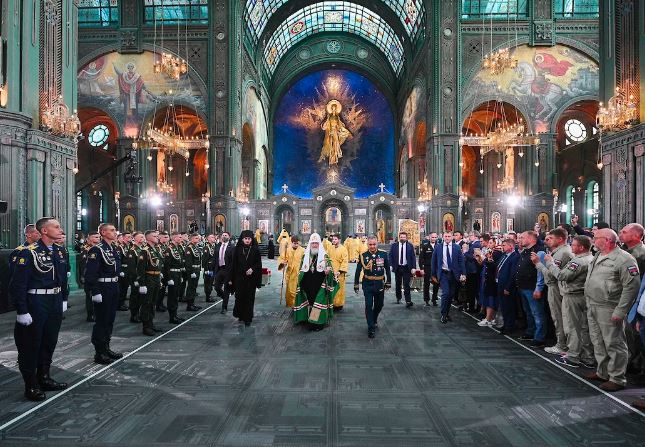
When talking about how widespread is the ideology of the "Russian World" is among believers of the UOC MP, it is unlikely that they believe they are a god-bearing nation; rather, they want to join a god-bearing nation. Many of them don't want to belong to the victimized nation that is Ukraine, they want to belong to the winners. If Ukraine becomes the winner, maybe they will perceive it as a sign from God.
At this stage, they still have the phantom pain that Russia, the Russian Empire, became the largest empire in the world because God allowed and helped it to be so.
Overall, the concept of the “Russian World” is so unstable that it’s hard to say for sure how widespread it is in the UOC MP. But it works in the way that it prompts camouflaging and hiding until it is possible to join a victorious Russia.
The ideology is hidden and in a dormant state for now. Moreover, it is mainly an urban phenomenon, as we have seen it propagated through cultural and paramilitary organizations. In the rural areas, UOC MP faithful can be sincere Ukrainians; for them, it's just a matter of their church, their priest, and it's very local and personal. "Don't touch our priest, don't touch our church, we have a Ukrainian church." And the UOC MP has done a lot to mimic the Ukrainian church and pretend they separated from the Moscow Patriarchate. But, they will be part of it until the Moscow Patriarchate denounces a schism between it and the UOC MP.
So why do UOC MP priests bless Russian invaders?

Let’s try to imagine the thoughts of a priest from Luhansk, blessing Russian soldiers as they invade Ukraine.
He believes he is doing the right thing. Over there, they considered themselves members of the Russian Orthodox Church from the very beginning and viewed the autonomy it granted to the UOC MP after the dissolution of the USSR as a temporary measure that can easily be canceled once integrationist state movements occur, such as Ukraine and Belarus joining a common Russian state. And they desired this turn of events because of their Russian consciousness and because they consider themselves part of the "Russian world." It is simply a matter of belonging: he feels it's good that he belongs there, while all these Ukrainian movements are something bad, because he is an older priest and this consciousness was formed before the collapse of the Soviet Union.
Indeed, UOC MP adherents of the “Russian world” believed that everything coming from Russia was inherently superior, more intellectual. They saw themselves as part of a divinely chosen nation, while Ukrainians who rejected this concept were considered traitors. And, similar to Russia and its leadership, they treated traitors more harshly than enemies, even cruelly.
These priests simply considered Ukrainian national movements to be akin to Nazism. In this, they shared the ideology of the Russian leadership, which labels Ukrainian national movements, who fought for an independent Ukrainian state against the Red Army, as fascism and Nazism, because Russia sees itself as the sole victor in World War II. This means that they view anything against Russia as fascism. What they call “Russophobia,” aka a pushback from the Russian civilizational space, is equated to Nazism and fascism.
This priest, in principle, didn't want to be part of the “fascist” Ukrainian churches, “non-canonical” and “unrecognized.” There's a whole irrational game at play. They believed, in principle, that all of eastern Ukraine’s Donbas is Russian territory, which was illegally and unfairly annexed to Ukraine, a divisive idea placed in Ukrainians’ heads in the 2000s for electoral purposes based on the myth that Donbas was built after the collapse of the Soviet Union as a separate entity with its own identity, which is very close to Russian identity.
The UOC MP today: how much do they still adhere to the "Russian World"?
Fast forward to 2023. The UOC MP has radically changed its rhetoric, claims that it is actually with the people, that its faithful fight against Russian invaders in the Ukrainian army, it prays for the Ukrainian military, and that it is not associated with the "Russian World" anymore. But how much is the "Russian World" that existed within it all these years still present?
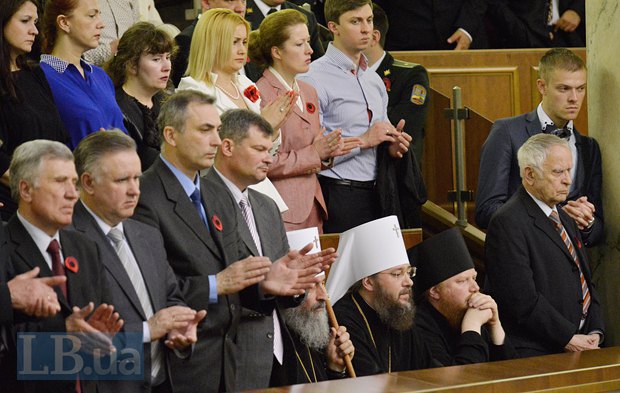
Metropolitan Onufriy and several bishops at the beginning of the invasion in February-March 2022 condemned the Russian aggression against Ukraine. Now, these statements are used as proof of their absolutely pro-Ukrainian position, and the narratives of the UOC MP as a patriotic church are repeated at the local level when priests and faithful state that they support Ukraine, provide humanitarian aid, and their faithful are the front, etc.
But recall the statements of Russian President Putin and Foreign Minister Lavrov, who regularly claim that Russia is “defending itself” by attacking Ukraine. Words are cheap; actions matter, such as those many cases of collaboration that forced the Ukrainian state to take action and finally bring criminal charges against UOC MP clergy.
Considering the brainwashing that the UOC MP has conducted for over 30 years, the "Russian World" ideology there cannot disappear overnight or even in one month or year. One marker of how many UOC MP parishes belong to the “Russian World” is the number of parishioners and parishes and in some cases even dioceses, that have rebelled against the decision of the UOC MP’s Council of 27 May 2022 and continue praying for Russian Patriarch Kirill.
Many UOC MP faithful abandon their parishes if Kirill is not mentioned during services and search for ones that do. For them, this connection with Russia is fundamental; they believe that the UOC MP becomes delegitimized without the Russian patriarch. And if all UOC MP parishes join the autocephalous OCU, as the Ukrainian authorities would prefer, these "Russian world" hardliners may go underground, create their own parishes, and end up outside of state oversight.
What should the Ukrainian state be doing about the UOC MP?
Right now, the Ukrainian state is acting in a spirit of voluntarism when it terminates lease agreements for UOC MP churches (such as the Kyiv-Pechersk Lavra), abets their forceful transfer to the OCU, and contemplates banning the UOC MP. But the problem is that it is no longer a matter of believers' rights but a matter of national security, without which no rights can exist.
The Ukrainian state’s crackdown on UOC MP is mostly a reaction to the demands of society, which harbored a boiling anger at the “Moscow church” over the years – a “populism” of sorts.
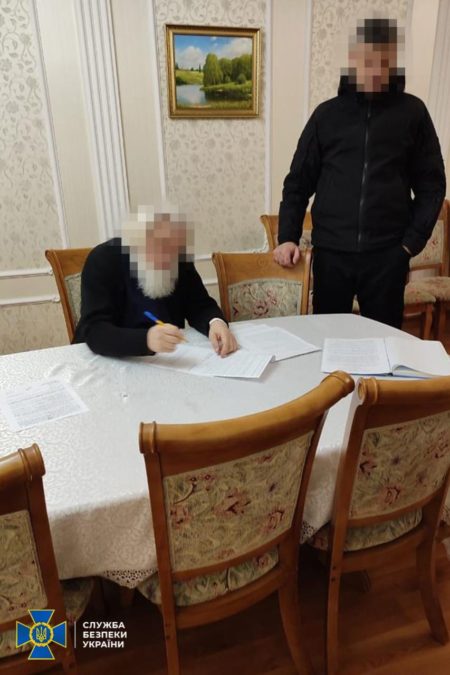
We must understand that Ukrainian society wanted justice, which primarily meant the legal punishment of violators within the UOC MP, who for years worked to undermine Ukrainian statehood. However, the government dragged on with this for years because they were afraid to touch the UOC MP. There was a risk that in the period of Ukraine’s weak statehood following Russia’s first invasion in 2014, when it was only starting to fight and build up its army, Russia would escalate military actions against Ukraine if the UOC MP was banned.
That's why President Petro Poroshenko, elected in 2014 after Euromaidan, took gradual steps to curb Russia's influence through the Moscow-affiliated church by promoting Ukrainian church autocephaly and through legislation requiring the UOC MP to declare its affiliation with Moscow clearly.
However, the UOC-MP did not comply. They understood that their believers would start leaving them if, if the UOC MP’s Russian connection was laid bare.
At the end of the day, I don't know what ultimately pushed President Zelenskyy, who, unlike his predecessor Poroshenko, declared his neutrality towards the religious sphere, to launch a crackdown on the UOC MP.
But the whole problem is that you cannot ban the UOC MP as a church. It is not a legal entity, as legally, only each separate parish exists in the paperwork. The Ukrainian state can corner each one and deprive it of property, but only state and communal property. Ukraine is considering a bill on banning the activities of the Moscow Patriarchate in Ukraine, but as it is still unadopted, most of the actions undertaken against the UOC MP were legally justified, such as not prolonging contracts and agreements. The recent adjunction of UOC MP temples to the OCU was legally questionable, however. Still, in the end, it’s a question of national security, and likely, the Security Service of Ukraine has evidence of the systematic support of UOC MP representatives for Russia in all eparchies.
However, now, the Ukrainian governments’ crackdown only convinces the UOC MP faithful that they are persecuted martyrs for their faith, inciting the ”besieged fortress” syndrome. The thing is that in Ukraine, unlike in the West, parishes are very temple-oriented, and if these temples are taken away, people irrationally perceive it as an attack on their religion and blame an external enemy.
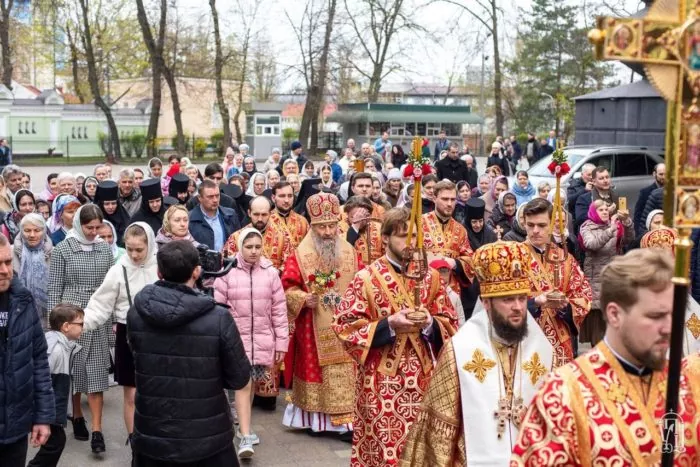
The "Russian world" has sown unity, like dragon’s teeth. Now, it appears that only Russia can protect the UOC MP, raising “religious persecution” issues at the UN, various human rights organizations, and the Russian Security Council, which tempts UOC MP to view Russia as their only protector.
The ideal policy of the Ukrainian state regarding the UOC-MP should be:
- Taking legal actions. This involves holding all UOC MP members who violated Ukrainian national security accountable, every single one. This should be easy, because the Security Service of Ukraine (SBU) has a lot of compromising material related to financial cooperation with Russia, spreading propaganda, etc. All illegal actions of the UOC MP should be systematically inventoried and terminated, including removing illegally constructed temples, such as when the UOC MP sets up a tent on the street, which gets eventually converted into a church. The goal is to clearly demonstrate that such actions are illegal so that over time, people in their parishes would at least ask the priest for documents related to leasing land, using the church, etc.
- Conducting an information campaign directed at UOC MP faithful to dispel destructive myths about the autocephalous OCU, spread by the UOC MP over decades, as well as spread awareness about cases of UOC MP priests collaborating with Russia, bishops holding dual Ukrainian-Russian citizenship, etc. Currently, the media coverage of church matters demonizes the UOC MP and confirms the biases of Ukrainian patriots. However, we need to work to convince the flock of the UOC MP that they have been deceived when told that the UOC MP has no connection to Russia so that they will initiate a push away from Moscow and the "Russian world."
Related:
- How the Russian Orthodox Church enabled Putin’s war against Ukraine
- Moscow-backed Ukrainian Orthodox Church still linked to Russia despite claims – expert committee
- More parishes leave Moscow-backed Ukrainian Orthodox Church amid growing pressure, anger, and chaos
- Moscow Patriarchate’s war in the Kyiv-Pechersk Lavra: church turmoil in Ukraine, explained
- Passions in the Lavra: why the Ukrainian state broke its patience with the Moscow-aligned Orthodox Church
- Moscow-backed Ukrainian Orthodox Church leader, 20 other hierarchs are Russian citizens, media claims; church denies
- Russian World: the heresy driving Putin’s war
- Russian ideology: imperialism, militarism, and racism

